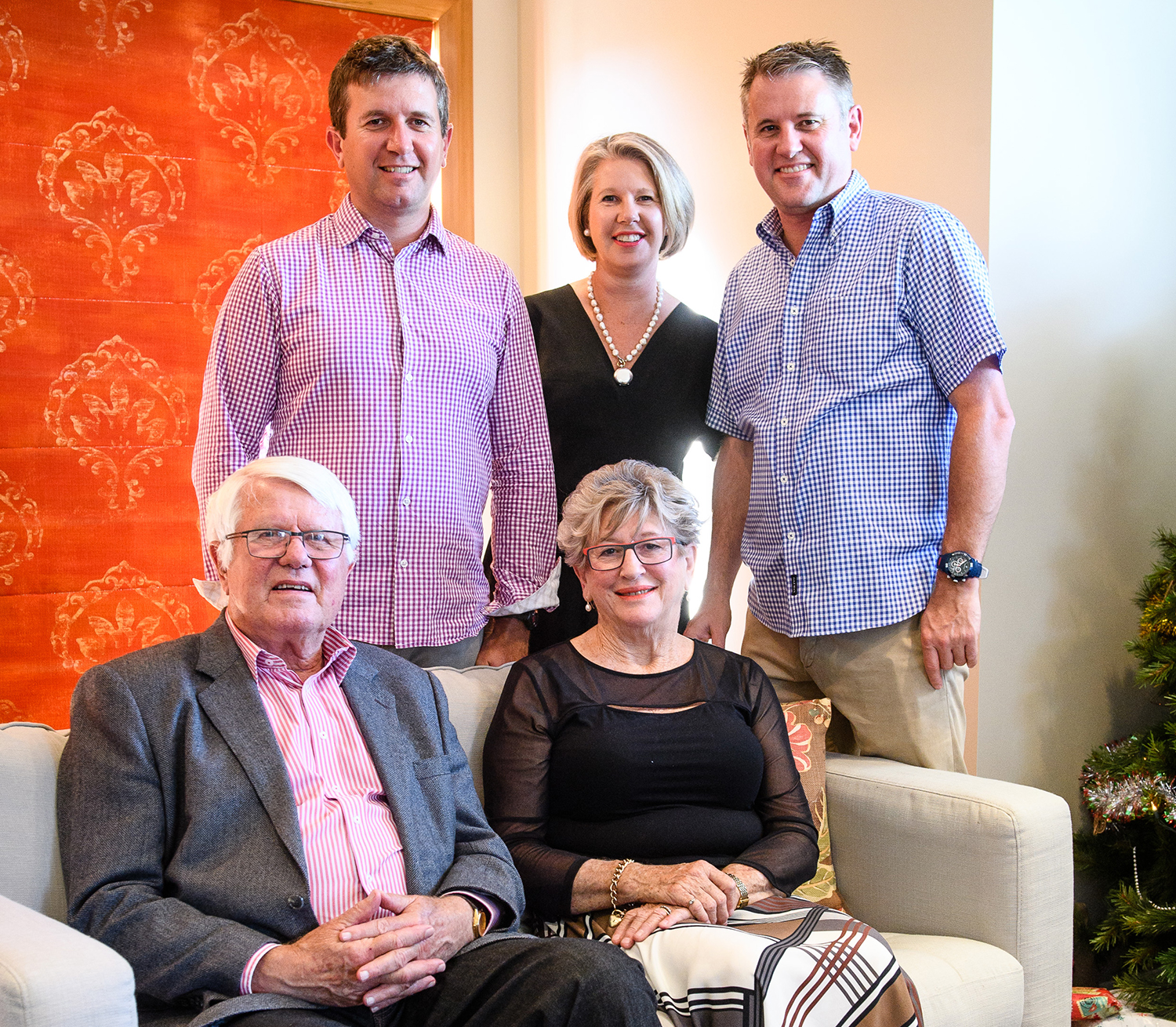About us
The Plimmer farms are based in New Zealand’s central North Island, all within 50 km (or 50 minutes) from the town of Taihape.
Farmed by our parents, Warren and Anne Plimmer, since 1964 when they moved to Motukawa, the family’s farm holdings have extended to include the nearby farms of Black Hill, Kellys and Northview.
From these four farms, each year we produce 33,000 lambs (26,000 sold to the market) and 1,200 calves (1,000 sold) and 160,000kg of wool from a total effective land area of 4,960 hectares. We also have 300 hectares of forest plantations and 100 hectares in indigenous bush.
Simon Plimmer, Sally Fox and Hamish Plimmer
Warren (late) and Anne Plimmer
Photo: Mark Tantrum
When Warren and Anne retired from farming, the overseeing of the farms was taken over by their three children – Sally, Hamish and Simon.
Sadly, Warren passed away on 18 August 2020 and is greatly missed - he was 78.
We are very proud of Mum & Dad who developed these properties into the four significant farms we have today.
Day-to-day operational management is done by three farm managers – Rimu Wipaki at Motukawa, Stephen Ponsonby at Kellys & Black Hill, and Richard Minty at Northview.
“These properties are real ‘hard yakka’ farms – it’s challenging up in the central North Island working on what is mostly steep hill country. But we loved our life up on the farm, enjoying the ups and downs of rural life, and really making something of the properties. We’re proud that now the baton is passed to Sally, Hamish and Simon and their families.”
Warren Plimmer
Warren Plimmer 1983
Custodians of the land
Our family is very aware of our role as custodians of the land. We have a responsibility, and an obligation as landowners, to look after the Plimmer & Co Farms properties for future generations – not only for our own families, but also for all New Zealanders.
Plimmer & Co Farms consults closely with Horizons Regional Council (that manages the natural resources of the Manawatu-Wanganui region) on environmental issues such as fencing off waterways, retiring land, planting plans, space planting and gully reversion.




